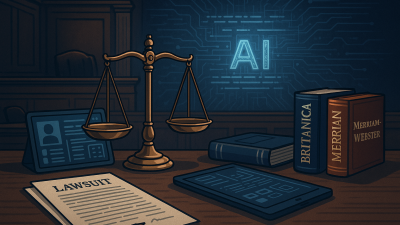OpenAI Secures Microsoft’s Backing for Strategic For-Profit Transition
OpenAI, one of the most influential organizations in artificial intelligence research, has received Microsoft’s approval to transition its for-profit operations, a move that signals a major evolution in AI commercialization.
This transition enables OpenAI to scale its operations, strengthen enterprise partnerships, and accelerate AI product deployment—all while continuing its mission to ensure AI is developed safely and ethically. Microsoft, a long-standing strategic partner and investor, provides critical support, ensuring that OpenAI can leverage enterprise cloud infrastructure, joint development resources, and commercial channels effectively.
Why This Transition Is Significant
Scaling AI Deployment Across Enterprises
OpenAI’s for-profit arm allows for rapid and widespread deployment of AI solutions in enterprise environments. Through Microsoft’s cloud infrastructure and AI tools like Azure OpenAI Service, organizations can integrate cutting-edge AI into operations faster and more efficiently.
Enterprise Examples:
-
Customer support automation using GPT-powered chatbots
-
Predictive analytics for sales, logistics, and operations
-
AI-driven insights for marketing, finance, and strategy
Strengthening Strategic Partnerships
Microsoft’s approval solidifies the partnership, giving OpenAI access to critical resources while offering enterprises confidence in adoption. This ensures that AI solutions are reliable, scalable, and aligned with enterprise compliance standards.
Balancing Profit and Mission
While OpenAI’s core mission remains focused on safe and beneficial AI, the for-profit arm enables the organization to:
-
Generate revenue to sustain large-scale research initiatives
-
Attract and retain world-class talent
-
Fund development of more advanced AI models and applications
This structure demonstrates that commercial success and mission-driven innovation can coexist.
Accelerating AI Innovation
With Microsoft’s backing, OpenAI can push cutting-edge AI research into real-world applications more rapidly, including:
-
Advanced language models for enterprise decision-making
-
Agentic AI systems capable of autonomous task completion
-
AI-powered tools for healthcare, logistics, finance, and more
Implications for the AI Industry
-
For Enterprises:
Companies gain expanded access to AI models and solutions with enterprise-grade reliability, enabling rapid adoption of AI in workflows, automation, and data-driven decision-making. -
For Competitors:
Startups and AI firms may face pressure to accelerate commercialization and innovation, as OpenAI combines research expertise with enterprise-grade solutions. -
For the AI Ecosystem:
OpenAI’s model demonstrates a balance between mission-driven research and sustainable commercialization, encouraging responsible innovation across the industry. -
For Investors:
OpenAI’s for-profit transition opens new revenue streams, enterprise contracts, and partnership opportunities, making the AI landscape more investable and commercially viable.
Potential Enterprise Applications
-
Customer Service Automation
AI models can handle routine queries, freeing human agents for complex tasks, while improving response times and accuracy. -
Predictive Analytics & Decision Support
Enterprises can use AI to forecast demand, optimize supply chains, and improve strategic planning. -
Intelligent Workflow Automation
Repetitive business processes across finance, HR, and operations can be automated, improving efficiency and reducing errors. -
Healthcare & Life Sciences
AI can assist with diagnostics, patient monitoring, drug discovery, and research analytics. -
Marketing & Personalization
AI-driven insights enable highly personalized marketing campaigns, customer segmentation, and engagement optimization.
FAQs
Q1: What does OpenAI’s for-profit transition mean?
-
OpenAI is restructuring part of its organization to operate commercially, enabling faster AI deployment, enterprise partnerships, and revenue generation while maintaining its mission to advance AI safely.
Q2: Why is Microsoft’s support critical?
-
Microsoft provides cloud infrastructure, enterprise channels, and strategic guidance, ensuring OpenAI can scale operations effectively and reliably.
Q3: How will this affect enterprise customers?
-
Enterprises will benefit from direct access to commercial AI offerings, streamlined integration, and enhanced support for large-scale deployment.
Q4: Will this compromise OpenAI’s mission?
-
No. The for-profit arm is structured to fund research and operational expansion without compromising the organization’s focus on ethical and safe AI development.
Q5: What new AI innovations might result from this transition?
-
Enterprises can expect advanced language models, agentic AI, AI-powered analytics, and automated workflow solutions, along with new tools for industry-specific applications.
Subscribe to TBB for weekly insights on AI developments, enterprise applications, and emerging technology trends—delivered straight to your inbox.
Note: Logos and brand names are the property of their respective owners. This image is for illustrative purposes only and does not imply endorsement by the mentioned companies.



